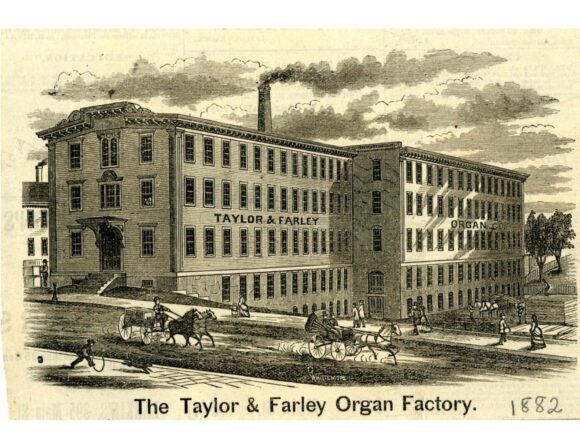Georgia State Tax Planning
As we approach the final tax return filing deadline for individual and corporate taxpayers, there is increased activity in the market for Georgia film tax credits as well as Georgia low income housing tax credits. This article will briefly overview both programs and help provide clarity for taxpayers who are looking to utilize tax credits to reduce their Georgia state liability.
What is the same?
Both the GA film credit and the GA low income housing credit are generated based on a percentage of qualified expenditure from the respective projects. When the entities that generate these credits cannot also utilize them, they can be transferred tothird party taxpayers at a discounted price to their face value.
Both credits are treated as property and therefore have similar tax treatment. In both cases, a capital gain is recognized on the day a tax return is filed claiming the credits. The amount of the gain is calculated as the face value of the credits less the investor’s basis. Taxpayers can maximize their return on investment by holding credits for one-year prior to filing their Georgia tax returns, consequently recognizing the capital gain at long-term rates instead of short-term rates.
Both of these credits are able to be carried forward from the year they are generated. Film credits carry forward five years, and low income housing credits carry forward for three years.
What is the risk? Recapture risk is similar between both credits. There is an increased level of assurance with the low income housing credits because the risk is diversified. Monarch creates a fund made up of several low income housing projects, and investors receive a portion of credits from each of the projects to make up their total allocation of credits.
What is different?
The main difference between the two credits is how the transfer of the credit is facilitated.
Film credits are referred to as transferrable credits. This means that credits can be transferred directly from a production studio to a taxpayer. The taxpayer receives a Form IT-TRANS as evidence of the transfer, then the IT-TRANS is used by the taxpayer to claim the film credits on their Georgia return. This is typically the preferred method of transfer because of how easy the process is. It is a one-time transaction, and the transfer is completed within five business days of the taxpayer funding their investment.
Low income housing credits are referred to as allocable credits. This means that taxpayers subscribe to a partnership fund created by Monarch and are allocated low income housing credits through a K-1. Taxpayers are deemed to have acquired an intangible asset, a tax credit, and to have made a partnership investment. A small portion of the taxpayer’s investment is allocated to their partnership capital account (1%), and the majority of the investment is allocated to their basis in the credits (99%). Investors will receive an allocation of credits through a K-1 and will then receive blank K-1’s for the next four years. The partnership dissolves after five years, and the investor gets to recognize a small capital loss equal to the amount of their investment allocated to their capital account.
Timing
Low income housing credits are less flexible in terms of the timing of purchase. The credits need to be bought during the tax year in which they will be applied against. So, if you are purchasing low income housing credits to be used on your 2020 tax return, they need to be purchased during 2020. This is because these credits are allocable, and investors need to be subscribed to a fund during the year in which they wish to receive credits.
Because film credits are transferrable, they are more flexible when it comes to the timing of purchase. You can buy 2019 film credits during 2020 to apply against your 2019 tax liability. Similarly, as long as you are still within the statute of limitations, you can buy film credits from a prior year, amend your prior year return, and receive an increased refund.
Another difference between the two credits is the price.
Low income housing credits are typically priced lower than film credits. The after-tax return for low income housing credits is around 14%, compared to an approximate 10% after-tax return for film credits.
Low income housing credits can also be bought in multiple year increments. When bought in multiple year increments, the return to investors greatly increases. This is because of a further discounted price as well as more favorable tax treatment.
For more information, please contact Ryan Degnan by emailing rdegnan@monarchprivate.com.
Related Posts

Monarch Private Capital Closes LIHTC Equity Financing for Walnut Street Phase I in Massachusetts
Mar 26, 2025
$43 Million Project to Deliver Affordable Housing for Massachusetts Communities ATLANTA, March 26, 2025 (GLOBE NEWSWIRE) – Monarch Private Capital, a nationally recognized impact investment firm that develops, finances, and manages […]

Novogradac Article: HTCs Help Compose New Song for Former Taylor and Farley Organ Factory in Worcester, Massachusetts
Jan 31, 2025
Nick Decicco, Senior Writer, Novogradac A former organ factor in Worcester, Massachusetts, with history reaching back to the mid-19th century is set for a future as 36 apartments thanks to […]

Monarch Private Capital Closes LIHTC Equity Financing for Patterson Point in Goleta, CA
Nov 6, 2024
$24 Million Project to Deliver Affordable Housing for Vulnerable Populations in Goleta, CA ATLANTA, November 4, 2024 (GLOBE NEWSWIRE) – Monarch Private Capital, a nationally recognized impact investment firm that […]